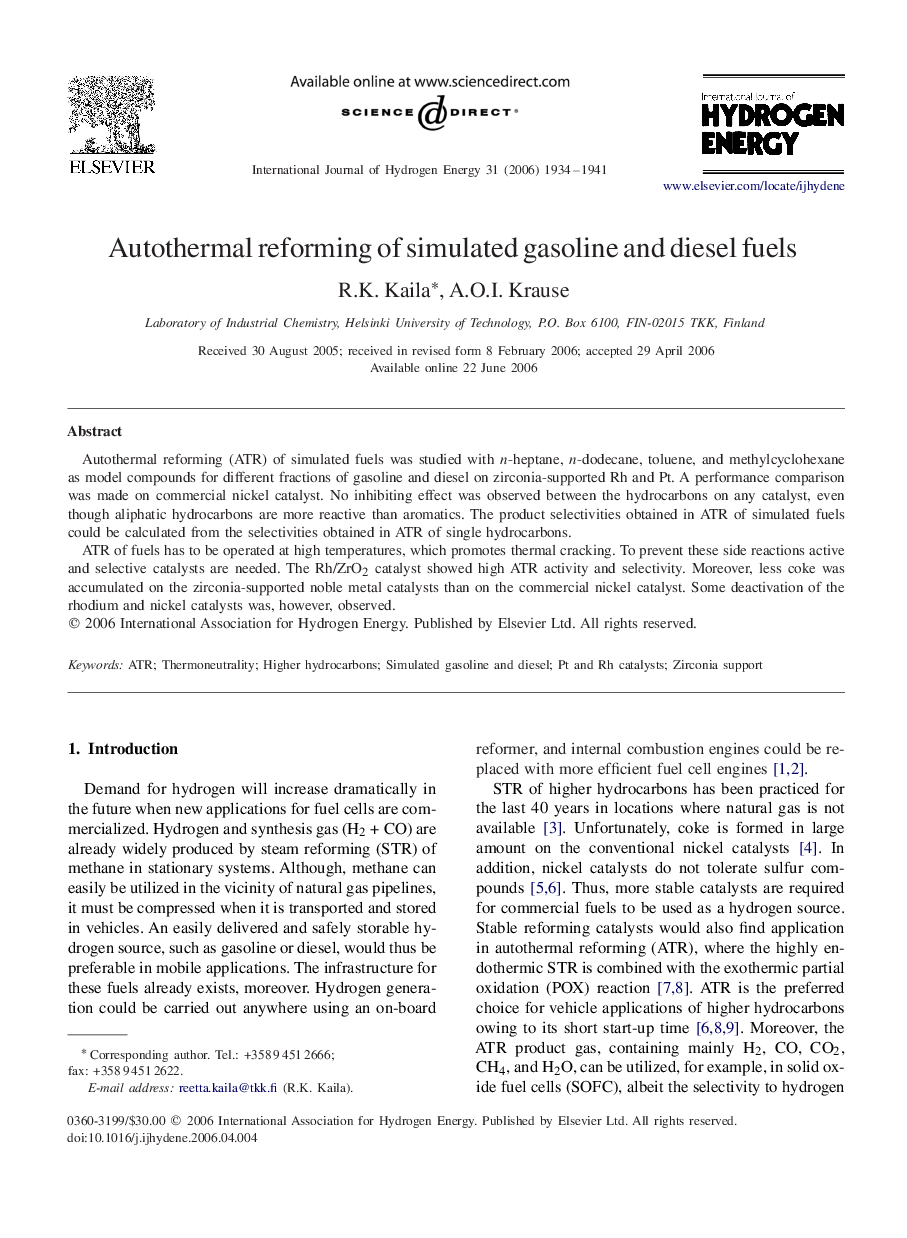| Article ID | Journal | Published Year | Pages | File Type |
|---|---|---|---|---|
| 1281087 | International Journal of Hydrogen Energy | 2006 | 8 Pages |
Autothermal reforming (ATR) of simulated fuels was studied with nn-heptane, nn-dodecane, toluene, and methylcyclohexane as model compounds for different fractions of gasoline and diesel on zirconia-supported Rh and Pt. A performance comparison was made on commercial nickel catalyst. No inhibiting effect was observed between the hydrocarbons on any catalyst, even though aliphatic hydrocarbons are more reactive than aromatics. The product selectivities obtained in ATR of simulated fuels could be calculated from the selectivities obtained in ATR of single hydrocarbons.ATR of fuels has to be operated at high temperatures, which promotes thermal cracking. To prevent these side reactions active and selective catalysts are needed. The Rh/ZrO2 catalyst showed high ATR activity and selectivity. Moreover, less coke was accumulated on the zirconia-supported noble metal catalysts than on the commercial nickel catalyst. Some deactivation of the rhodium and nickel catalysts was, however, observed.
